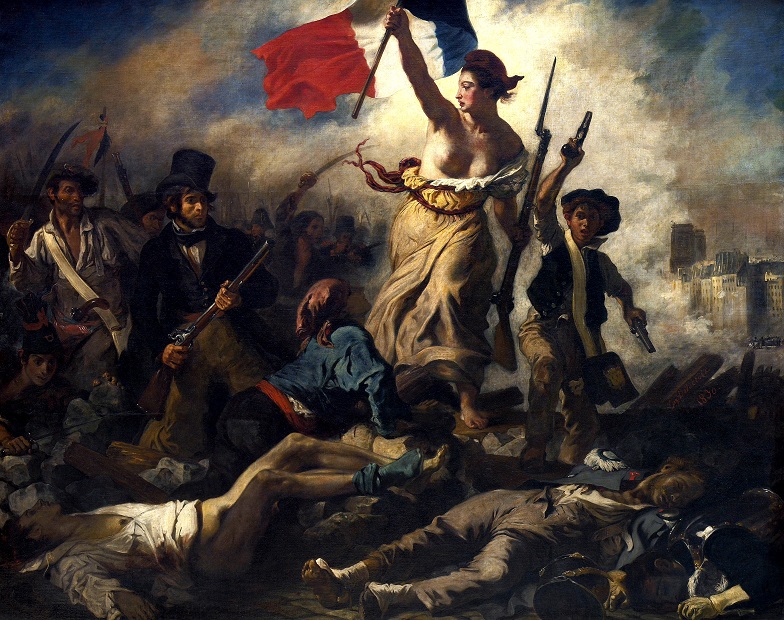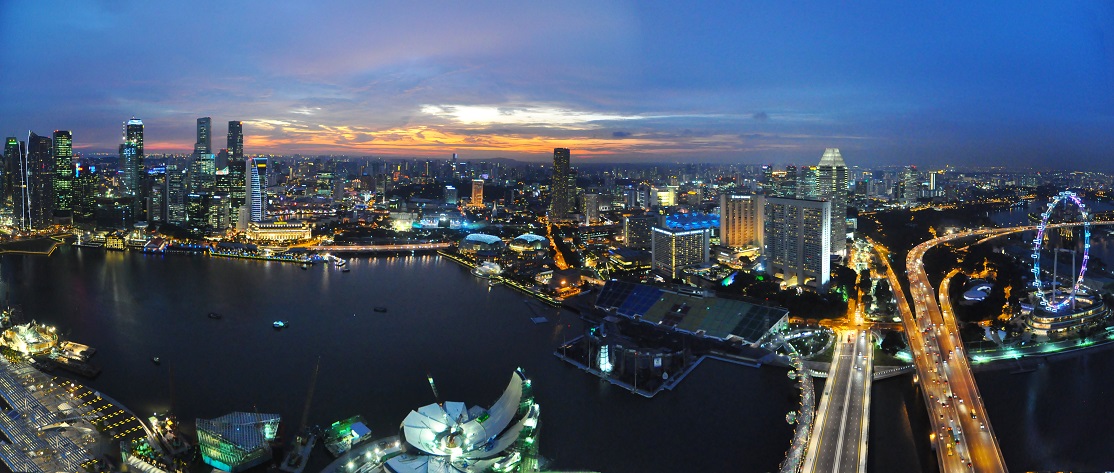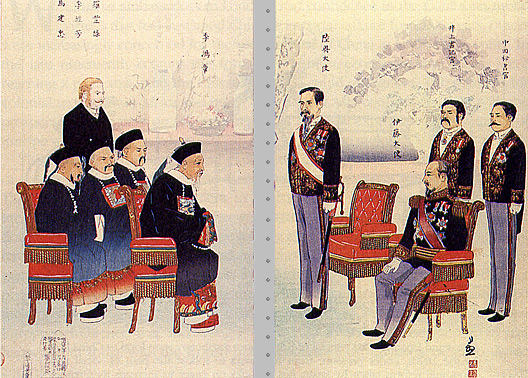

La Marseillaise has very violent, war-like lyrics telling the French People to defend themselves and crush their enemies. (Photo by Reuters)
I started writing this the day after 14 Juillet (July 14), known to the rest of the world as Bastille Day, which the French refer to simply as their Fête National (National Celebration) while I am at this moment in Paris for a company trip. With this experience of being in the French Capital at the time that the French just celebrated their founding as a Republic, I couldn’t help but notice that the lyrics of the French National Anthem are extremely violent, war-like and essentially exhorting the French People to defend themselves against their enemies/oppressors, and most importantly, to crush (violently) those enemies and win. Let’s look at the words of the current French National anthem:
| Allons, enfants de la Patrie ! Le jour de gloire est arrivé ! Contre nous de la tyrannie, L’étendard sanglant est levé ! (2x) Entendez-vous dans les campagnes Mugir ces féroces soldats ? Ils viennent jusque dans vos bras Égorger vos fils, vos compagnes Aux armes, citoyens ! Formez vos bataillons ! Marchons, marchons ! Qu’un sang impur… Abreuve nos sillons ! |
Let us go, children of the Fatherland, The day of glory has arrived Against us, tyranny’s blood-stained banner is raised (2x) Do you hear in the countryside the roar of the ferocious soldiers? They are coming right into your arms To cut the throats of your children and your women To arms, citizens! Form your battalions! Let’s march, let’s march! That the impure blood flows into our furrows! |
Now this song is a march, musically no different from the Philippine National Anthem – originally known as La Marcha Filipina – where the first seven notes of the verse “Lupa ng araw, ng Lualhati’t pagsinta…” (originally “Tierra de dichas, del sol y amores, en tu regazo dulce es vivir”) are actually taken from the first seven notes of La Marseillaise. Look at the words of La Marseillaise in detail… “Allons enfants de la Patrie, le jour de gloire est arrivé !” (There must be a space before the exclamation mark, that’s how the French write it) “Let us go, children of the Fatherland, the day of glory has arrived!” It’s essentially talk about glory. About success. About winning. Then the words start to talk about the threat of their enemies – the Oligarchic Nobles and the soldiers serving the tyrannical old order approaching to attack them and “cut the throats of their women and children.” So what is their response to this threat of an impending attack by their enemies?
“To arms, citizens! Form your battalions!”
Now this is not a passive statement of allowing things to just happen, waiting for the enemies to attack. It is an active exhortation to “fight back” and actively do something about the impending threat. Then right after the words “Let’s march, let’s march!” the song goes on to evoke a violent bloody end to their enemies… “Let an impure blood water our furrows!” What they’re saying in plain English is: “Let’s kill our enemies before they kill us and let their blood flow so that we irrigate our farmlands!” This reminds me of a famous quote by US General George S. Patton where he said:
“No dumb bastard ever won a war by going out and dying for his country. He won it by making some other dumb bastard die for his country.”
I’ll get to that Patton quote again later. But suffice to say, the lyrics of the Marseillaise aren’t much about dying as they are about defending themselves and in the process, defeating their enemies. By far, the French do have some of the most violent lyrics for a national anthem. In fact, some of their ex-colonies kind of followed in their footsteps: Vietnam and Algeria took their cue from the French in having war-freakishly violent lyrics.
But that’s part of the whole point. A national anthem is a song that will be played over and over again and somehow ought to spur people to action so as to achieve success as a society. Being violent isn’t the the whole point. Reminding the people to be vigilant or active in doing something to improve their plight is. So when we look at the anthems of other societies, we often see the same pattern of aspiring towards success or in building a better society.
La Marseillaise represents the extreme. It’s being a little “too violent” when it comes to the whole point of defending their own interests, but other countries’ anthems are moderate enough in talking about aspiring towards success and building a better society… Nevertheless, they’re all about something more positive and active. Not defeatist.
Singapore’s national anthem “Majulah Singapura” has lyrics that talk about building a progressive, happy, successful, and united society. The main refrain and its title literally mean “Onward, Singapore!”
| Mari kita rakyat Singapura sama-sama menuju bahagia; Cita-cita kita yang mulia, berjaya Singapura Marilah kita bersatu dengan semangat yang baru; Semua kita berseru, Majulah Singapura, Majulah Singapura! Marilah kita bersatu dengan semangat yang baru; Semua kita berseru, Majulah Singapura, Majulah Singapura! |
Come, fellow People of Singapore Let us progress towards happiness together May our noble aspiration bring Singapore success Come, let us unite In a spirit that is new; Together we proclaim Onward Singapore, Onward Singapore! Come, let us unite In a spirit that is new; Together we proclaim Onward Singapore, Onward Singapore! |
And no one can doubt that Singapore is an extremely successful society…
The words of a national anthem need not be “true” in the present sense. But they often talk about aspirations and hopes that the people should strive towards. A country that is economically disadvantaged need not worry if their lyrics talk about their wish that they become prosperous and rich, anthems aren’t supposed to be about the here and now. They are supposed to be an expression of what the people should strive for.
Even the Americans have words that talk about their aspirations in the Star-Spangled Banner, even if musically speaking, the tune itself evokes a rowdy bunch of drunk British colonials waving their ale, gin, beer, and whiskey. After all, the melody (though not the current lyrics) used to originally be a drinking song from London named “To Anacreon in Heaven.” (No wonder the melody sounds rather clumsy – it’s supposed to be the kind of song that drunks sing!) In any case, the last words of each verse always go: “O’er the land of the free and the home of the brave!” If anything, this last line of each verse is the one people remember. Free. Brave. These are the reminders to Americans of what they aspire to be. In fact, the last stanza in the long version goes:
“O thus be it ever, when freemen shall stand
Between their loved homes and the war’s desolation.
Blest with vict’ry and peace, may the Heav’n rescued land
Praise the Power that hath made and preserved us a nation!
Then conquer we must, when our cause it is just,
And this be our motto: “In God is our trust.”
And the star-spangled banner in triumph shall wave
O’er the land of the free and the home of the brave!”
As I said, a national anthem is about hopes and aspirations and is supposed to somehow stir up the people to want to take action to either improve their society or at the very least defend it against oppressors or enemies. And this is where the Philippine National Anthem, despite being a march with 7 notes taken from the war-like (and violent) “La Marseillaise”, unfortunately “brainwashes” Filipinos to end up thinking like losers… We have beautiful lyrics for most of our athem – lyrics which are no different from Denmark’s Civil Anthem which describes the beauty of their country and their people. We do have a line which says that “invaders will be repelled” (“Sa manlulupig, di ka pasisiil”), but unfortunately, it doesn’t tell the people that they need to actively do something to repel the invaders. In a sense, it seems to cause Filipinos to assume that by default – without doing anything – invaders will be repelled.
Now, unlike other anthems which stir their people to want to defend their country or build up a successful society, the last two lines of the Philippines’ Lupang Hinirang go totally against Patton’s quote about winning wars by not dying for your country, but instead letting your enemies die for theirs…
| “Aming ligaya ng ‘pag may mang-aapi, ang mamatay ng dahil sa ‘yo…” |
“It is our pleasure should there be an oppressor, that we would die because of you…” |
Now imagine these last lines being repeated every Monday morning at most schools for so many years. For some, such as public schools in the Philippines, flag ceremonies can sometimes be done every day. So just think about how much repeated brainwashing is done so that Filipinos raised on the Philippine National Anthem continue to hear the last two lines saying “aming ligaya ng ‘pag may mang-aapi, ang mamatay ng dahil sa ‘yo…” Ironically, the tune for “aming ligaya ng ‘pag…” sounds like the first 7 notes of La Marseillaise. But unlike La Marseillaise which actively exhorts the French to defend themselves and aspire to defeat and crush any enemies who purport to attack them, the Lupang Hinirang seems to suggest to Filipinos to just die and drop like flies whenever an oppressor appears.
I hate to say it, but the repeated brainwashing seems to have really turned us Filipinos into Failipinos: a nation of losers and naysayers who go against solutions aimed at improving any lousy situation. This sort of explains why so many Filipinos can’t seem to think about actively pursuing solutions aimed at fixing our situation. When some people talk about reforms, a large number of Filipinos go out of their way to shout that these reforms are not going to work. It’s a defeatist, non-starter attitude that makes many Filipinos assume by default that nothing can be done to fix a lousy situation. As opposed to the can-do attitudes of the people in many other societies which used to be much less progressive or poorer than the Philippines but have risen up to become among the better-run countries of the region, so many Filipinos like to make excuses for why proposed solutions aimed at ameliorating a situation or helping to fix a problem will not work instead of looking for ways to improve the situation. Just look at the simple issue of removing anti-FDI restrictions in the Constitution. This is something that should have been done ages ago.
In fact, it is the abundance of foreign direct investors and the economic boom their presence created in the late 1800’s during the latter years of the Spanish period that the Philippines was able to produce illustrious thinkers and highly talented renaissance men such as Rizal, the Luna brothers, Marcelo del Pilar, etc. Even Andres Bonifacio was able to live rather comfortably because of his employment at foreign companies – first at the British Fleming and Company and later at the German Fressel and Company. The coming in of so many more foreign direct investors during the American Period made the Philippines a relatively prosperous society, with Manila and several Philippine cities being considered beautiful (nice European-style architecture) and advanced at the time. But for some reason, we increasingly experimented with “economic nationalism.”
Let’s not forget that the English version of the original Spanish-language Philippine National Anthem which was current at the time of the Americans and immediately thereafter translated the last two lines as:
“But it is glory ever, when thou art wronged, for us, thy sons to suffer and die…”
| “Es una gloria para tus hijos, Cuando te ofenden, por ti morir…” |
“But it is glory ever, when thou art wronged For us, thy sons to suffer and die…” |
Sure, it sounds a lot like “Dulce et decorum est pro patria mori” by the Roman poet Horace (“It is sweet and proper to die for the Fatherland”), and maybe at the time it evoked a romantic attitude of self-sacrifice.
But whether repeatedly brainwashing people to act like cannon-fodder as opposed to brainwashing people to charge at the enemy and defeat them, it pretty obvious that the chances of success are higher when people are “brainwashed” to assume that doing something about a threat or doing something about a situation is far better than just sitting back and doing nothing. (In psychology, Anger is better than Fear, Aggressiveness is better than Timidity as far as survival and defense against enemies is concerned.) We now know the ill-effects of such brainwashing. Just look at that the English version: It’s making Filipinos think that it is glorious to suffer and die when the country is wronged.
It didn’t say anywhere that the people will die while fighting against an enemy. Defending the country and fighting against enemies is not at all mentioned. Suffering and dying is. (The English version is worse because it mentions suffering in addition to dying.)
So it’s no surprise that Filipinos seem to think that we are destined to lose all the time.
Talk about bringing in Foreign Direct Investments, many Filipinos immediately think that we have absolutely no chance of using them to our advantage for job creation, reduction of unemployment, knowledge transfer, skills development, etc. Many Filipinos automatically think that foreign investors are “invaders” whom we have no ability to compete against or learn from. So many of us immediately assume that we will immediately lose.
This is why Constitutional Reform, albeit absolutely necessary for the Philippines to move forward and modernize itself, has been difficult to pursue.
Far too many Filipinos seem to have been brainwashed by years of hearing that it is “glorious to die when an oppressor emerges” be in a default state of assuming that we can never do anything to win. The push for Constitutional Reform in removing anti-FDI restrictions keeps encountering opposition from many Filipinos because of this Loser Mentality that we have been repeatedly brainwashed to take on. We assume that when foreign investors come in, we will lose, they will own our businesses, they will own our country, and that we cannot compete. It’s such a defeatist attitude that goes against the fact that Filipinos are indeed among some of the most talented people, if not in the world, at least within the Asia region.
Just look at our neighbors whose people are similar to us. Malays from Malaysia and the Indonesians are similar to us. Same stock. In many cases, they actually look up to us as being more talented than they are. But ultimately, their societies are actually doing better than ours economically. Why? Because while many Filipinos refuse to undertake certain necessary and important reforms in order to actively develop the Philippines, Malays in Malaysia (who run Malaysia) and the Indonesians are willing to do whatever works. They are open to bringing in foreign investors in, and they are willing to make certain reforms that would streamline the way they do things so that their societies improve.
I wouldn’t be surprised that their national anthems have something to do with it…
Malaysia’s “Negaraku” (My Country) talks about being united, progressive, happy and successful. Their last stanza goes:
“May God bestow
blessings and happiness
May our ruler
have a successful reign”
Indonesia’s “Indonesia Raya” (Great Indonesia) talks about building the soul and the body of Great Indonesia and a lot of other positive aspirations. And their last stanza goes:
“May its people be safe, may its children be safe
Its islands, its seas, entirely
The state progresses, its scouts advance
For Great Indonesia”
Again, let’s compare the last lines of these neighbors’ anthems with our last two lines…
| “Aming ligaya ng ‘pag may mang-aapi, ang mamatay ng dahil sa ‘yo…” |
“It is our pleasure should there be an oppressor, that we would die because of you…” |
In other words, we assume that if someone with more knowledge, more resources, or more abilities comes over, it would be our pleasure to die. We wrongly assume that we cannot compete. We wrongly assume that we cannot benefit from any relationship with outsiders or people whom we feel to be different from us, that there is no such thing as a win-win situation and that it is always a zero-sum game where we Filipinos are destined to lose. We never even think of learning best practices from them.
This is in stark contrast to the “we can win if we do the right things” attitude of the Japanese during the Meiji Restoration whose attitude was to meet the threat previously posed by Matthew Perry’s superior warships (during the last days of the Tokugawa Shogunate) head-on by learning from the West, modernizing, and “becoming like Westerners too.”
In the Japanese woodblock print above depicting the Treaty in which China was forced to cede several territories to the Japanese, the traditional robe-wearing Qing Dynasty Chinese official delegation to the treaty signing are made to appear backward, primitive, feudal, and reliant upon a Western advisor to negotiate on their behalf. On the other hand, the Japanese delegation wearing full Western-style regalia and attire are depicted as being modern, advanced, and confident due to their decision a few decades ago to Westernize themselves, adopt Western standards, European best practices, Western know-how, Western industrialization, etc.
This was the result of a massive societal change in Japan resulting from a visit in 1853 by several US Navy battleships under Commodore Matthey Perry’s command where the hitherto culturally-isolated Japanese realized that they were so left behind and no match for the Americans and the rest of the West. Rather than retreating further into isolationism, the Japanese decided to take the challenge head-on by modernizing through an active emulation and copying of the Westerners, Western technology, and Western institutions. In the end, Japan went through major shifts in thinking that turned their society into a Western-styled one, turning themselves into the most advanced society in Asia.
In contrast, Filipinos assume by default that we can’t compete or that we are destined to lose. Instead of playing smart by learning from our competitors or playing on our strengths, usual idea of many Filipinos is retreat into isolationism and “protectionism”, setting up barriers that will prevent us from having to deal with people whom we erroneously think are superior to us and are, by default, destined to defeat us.
This Loser’s Attitude that our national anthem’s last two lines have brainwashed into us has extended to many other aspects of our psyche so that whenever reforms aimed at improving society such as shifting from the defective and lousy Presidential System and towards the more efficient, more stable, and more accountable Parliamentary System, so many Filipinos think “it’s not going to work.” What a very unproductive attitude! So many Filipinos even go to great lengths using their brainpower to make excuses not to adopt certain tried and test reforms that have worked everywhere when they could have used their brains to think about looking for solutions and perhaps had they done so, they would have ended up arriving at the same solutions that experts specializing in such endeavors have arrived at. Instead of helping out in looking for feasible solutions or improving on the solutions already proposed, so many Filipinos would rather use whatever brainpower they have to explain why a proposed solution would fail. Quite often, such naysayers would even go to great lengths to engage in intellectual dishonesty by quoting false “facts” or resorting to logical fallacies.
Thanks to the last two lines of the Lupang Hinirang, so many Filipinos have turned into “Failipinos” and the Philippines has turned into the “Failippines.”
It’s just so sad because the Philippines actually has what it takes to be a very successful society. We have a lot of natural resources, a lot of really nice tourist sights, beaches, mountains, a strategic location to facilitate intercontinental trade (Continental East Asia with the rest of Southeast Asia and Australia + Asia with the Americas), and extremely talented people. (Do recall that in 2015’s Asia’s Got Talent grand finals, the Philippines had 4 finalist acts out of a total of 9 finalists, the Philippines being the only country to have had more representation than the others – Singapore, Thailand, China, Mongolia, and Japan – who had one act each in the grand finals.) But the continuous brainwashing and indoctrination by the last two lines of our national anthem seems to have caused our country to end up as a pathetic under-achiever in a region full of high achievement.

4 Grand Finalists out of 9 Asian finalists are Filipinos — Top-Left: El Gamma Penumbra; Top Right: Gerphil Flores; Bottom Left: Gwynneth Dorado; Bottom Right: Junior New System
(Once again… 4 Filipino Finalists out of 9 Asian grand finalists? So why is our society in such a mess?)
This is why it may be necessary for the Philippines to revise the last line of the Lupang Hinirang… Instead of the current:
| “Aming ligaya ng ‘pag may mang-aapi, ang mamatay ng dahil sa ‘yo…” |
“It is our pleasure should there be an oppressor, that we would die because of you…” |
Let’s remember General Patton’s quote:
“No dumb bastard ever won a war by going out and dying for his country. He won it by making some other dumb bastard die for his country.”
…perhaps it would work better to change it to:
| “Aming ligaya ng ‘pag may mang-aapi, ang magtagumpay ng dahil sa ‘yo…” |
“It is our pleasure should there be an oppressor, that we would prevail because of you…” |
Yup, “ang MAGTAGUMPAY ng dahil sa ‘yo…” is just a little change but it could possibly go a long way into causing Filipinos to change our collective attitude as a people from having a Loser’s Attitude to having a Winner’s Attitude.
Maybe. Just maybe, we might just end up taking on a more competitive and progressive attitude. Think about it. It is not too far-fetched to think that many of us might have been brainwashed by the last lines of our national anthem to prefer death, defeat, and failure instead of victory and success. A simple change from “ang mamatay ng dahil sa yo” to “ang magtagumpay ng dahil sa yo” may just give us the boost in confidence we need to know deep down that we are capable of succeeding and turning our fortunes around for the better. We need a “can-do” and a “never say die” attitude that gets us all doing whatever we can to succeed. A boost in confidence that a simple change in our national anthem from one of defeatism to one of actively pursuing success and victory will work wonders. Our relations with other countries and other people will improve. We are naturally a very nice and friendly people. People from other countries naturally like us. In all my years of working abroad, I have always – without fail – heard praises from non-Filipinos about the warm and friendly nature of our people. This is an advantage. But once we shift away from defeatism towards actively pursuing success as our “default setting”, we will also become much more economically successful, and much more respected around the world. We will not fear foreign investors and instead, we will use their presence in our country to our advantage – learning from them and making use of them to create jobs for our people, utilizing them as training grounds for our people to acquire skills – and our own home-ground companies will even be able to compete with them successfully as we learn from their best practices and hire from among the ex-employees and ex-interns they trained. (Besides, why should we fear foreign investors? It was precisely thanks to the influx of foreign investors that Singapore emerged victorious against massive unemployment and became a First World country. Heck, even Singapore’s most famous landmark today, Marina Bay Sands, is one huge foreign investment owned by the American company Las Vegas Sands Corporation!)
With a can-do “assume the best” and “aim for victory always” type of attitude, Filipinos will constantly keep searching for ways to improve ourselves and our society. There will be no need for us to engage in useless and senseless debates about whether we should or should not adopt new changes aimed at improving our situation. If a Filipino proposes a solution that would increase jobs drastically, other Filipinos would more readily accept it or at best, seek to improve on it rather than try to shoot it down by saying “that’s not going to work because <INSERT LOUSY EXCUSE HERE>.” When Filipinos who have extensively and intensively researched on comparative government and propose a shift towards replacing our lousy Presidential System with the much better Parliamentary System, other Filipinos will not make knee jerk reactions like “It’s useless to shift from Presidential to Parliamentary because we will end up having the same kinds of lousy elected officials anyway” and instead, these Filipinos will think carefully and try to learn about how a Parliamentary System works first and find out that the way a parliamentary system works actually improves the quality of leaders who do emerge on top.
It’s time to reject the “no can do” defeatist Loser Mentality that has caused the Philippines to become the Failippines. We can start by changing the last words of our National Anthem so that instead of singing “Aming ligaya ng ‘pag may mang-aapi, ang mamatay ng dahil sa ‘yo…” we sing “Aming ligaya ng ‘pag may mang-aapi, ang magtagumpay ng dahil sa ‘yo…” Perhaps then we can end up having a default aspiration towards success and develop enough self-confidence with which to fix the failures of our society.
***
About the Author
 Orion Pérez Dumdum is the Asia-Pacific Regional Project Manager at a company whose main headquarters is in France. A polyglot and linguist, he is conversant in Cebuano, Tagalog, Ilonggo, English, Spanish, French, and Mandarin, and has knowledge of Portuguese, Italian, German, and Latin.
Orion Pérez Dumdum is the Asia-Pacific Regional Project Manager at a company whose main headquarters is in France. A polyglot and linguist, he is conversant in Cebuano, Tagalog, Ilonggo, English, Spanish, French, and Mandarin, and has knowledge of Portuguese, Italian, German, and Latin.
Being an Overseas Filipino Worker himself, he has seen firsthand how the dearth of investment – both local and foreign – is the cause of the high unemployment and underemployment that exists in the Philippines as well as the low salaries earned by people who do have jobs. Being Cebuano (half-Cebuano, half-Tagalog), and having lived in Cebu, he is a staunch supporter of Federalism.
Having lived in progressive countries like Singapore and Malaysia and visited others like the UK, Australia, and others in Europe which use parliamentary systems, Orion has seen first hand the difference in the quality of discussions and debates of both systems, finding that while discussions in the Philippines are mostly filled with polemical sophistry often focused on trivial and petty concerns, discussions and debates in the Parliamentary-based countries he’s lived in have often focused on the most practical and most important points.
Orion first achieved fame as one of the most remembered and most impressive among the winners of the popular RPN-9 Quiz Show “Battle of the Brains”, and got a piece he wrote – “The Parable of the Mountain Bike” – featured in Bob Ong’s first bestselling compilation of essays “Bakit Baligtad Magbasa ng Libro ang mga Pilipino?” He is the principal co-founder of the CoRRECT™ Movement to spearhead the campaign to inform the Filipino Public about the urgent need for Constitutional Reform & Rectification for Economic Competitiveness & Transformation. He is also an award-winning stand-up comedian, winner of the first ever Magners Singapore International Comedy Festival Best New Act Competition.




 I believe: This is a CoRRECT™ Video with a very positive message
I believe: This is a CoRRECT™ Video with a very positive message Walang Natira: Gloc-9's MTV Rap about the OFW Phenomenon
Walang Natira: Gloc-9's MTV Rap about the OFW Phenomenon